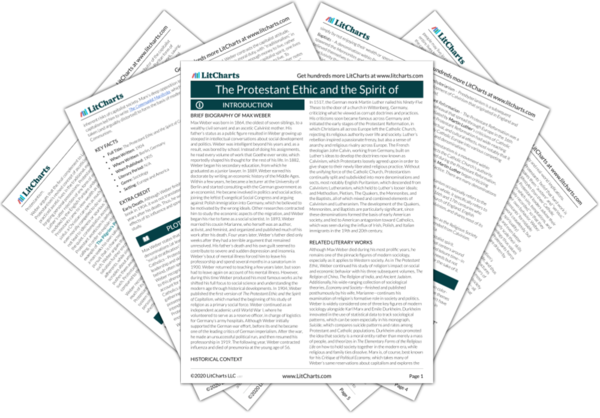Previous
Part 1, Section 2
|
Previous
Part 1, Section 2
|
The Protestant Ethic and the Spirit of Capitalism: Part 1, Section 3 Summary & Analysis |
Next
Part 2, Section 1
|


Upgrade to unlock the analysis and theme tracking for all of The Protestant Ethic and the Spirit of CapitalismThe Protestant Ethic and the Spirit of Capitalism!
Get LitCharts A+